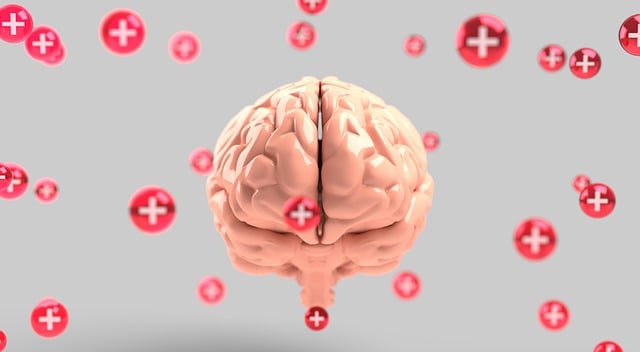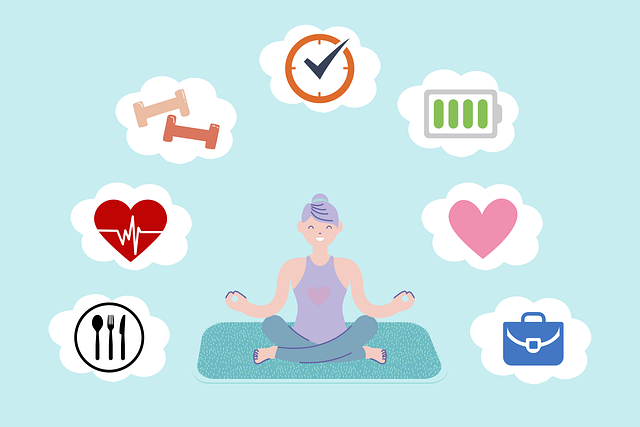Positive thinking is a powerful tool in Colorado Springs Pain Management Therapy, reducing stress, boosting resilience, and preventing depression. Incorporating exercises like gratitude journaling into daily routines enhances mental health alongside therapy. The city's holistic approach prioritizes mental wellness through cognitive-behavioral therapy, mindfulness, and relaxation techniques. Tracking progress via measurable goals keeps individuals motivated and allows for strategic adaptations. Mental health education for healthcare providers is crucial for preventing burnout and improving patient care.
In today’s fast-paced world, cultivating positive thinking is essential for maintaining well-being. This article explores the transformative power of positive thinking exercises and their role in enhancing overall health. We delve into strategies for integrating these practices into daily routines, highlighting the benefits of Colorado Springs Pain Management Therapy, a holistic approach that combines positive mindset techniques with traditional treatments. By understanding and tracking progress, individuals can sustain a positive outlook, leading to improved mental and physical health.
- Understanding Positive Thinking and Its Impact on Well-being
- Integrating Positive Thinking Exercises into Daily Routine
- Colorado Springs Pain Management Therapy: A Holistic Approach
- Tracking Progress and Sustaining a Positive Mindset
Understanding Positive Thinking and Its Impact on Well-being

Positive thinking is a powerful tool that can significantly influence an individual’s overall well-being and quality of life. It involves cultivating optimistic attitudes, reframing negative thoughts into positive ones, and focusing on personal strengths and accomplishments. This practice has been shown to reduce stress levels, boost resilience, and even play a crucial role in depression prevention, as it empowers individuals to challenge and change their thinking patterns. By embracing positive thinking, folks in Colorado Springs Pain Management Therapy can navigate life’s challenges with greater ease.
This mindset shift goes beyond mere optimism; it fosters a sense of control and empowerment, encouraging individuals to approach problems as opportunities for growth. As part of comprehensive wellness strategies, stress management workshops organized by like-minded groups or professionals can further enhance resilience building. These sessions often provide practical techniques for managing stressors, promoting positive thinking, and improving overall mental health, ultimately contributing to a happier, healthier life.
Integrating Positive Thinking Exercises into Daily Routine

Incorporating positive thinking exercises into your daily routine is a powerful way to enhance mental health and overall well-being. It’s a simple yet effective approach that can be easily tailored to fit various lifestyles, including those seeking Colorado Springs pain management therapy. Starting the day with a few minutes of gratitude practice or ending it with reflective journaling can significantly impact one’s outlook. These practices encourage individuals to focus on the positive aspects of life, fostering resilience and a more optimistic mindset.
Mental health awareness advocates emphasize that consistent engagement in such activities can be a game-changer in preventing depression and providing crisis intervention guidance. By integrating these exercises into daily rituals, people can better manage stress, improve their coping mechanisms, and even reduce pain perception. It’s a holistic approach that acknowledges the mind-body connection, which is particularly relevant in the context of pain management therapies offered in Colorado Springs.
Colorado Springs Pain Management Therapy: A Holistic Approach

Colorado Springs offers a unique approach to pain management through holistic therapy practices. This city’s focus on mental wellness is evident in its diverse range of therapeutic options, catering to various needs and conditions. The local pain management community emphasizes the interconnectedness of physical and mental health, recognizing that addressing one often positively impacts the other.
Holistic therapists in Colorado Springs utilize a combination of cognitive-behavioral therapy, mindfulness practices, and relaxation techniques to help individuals manage pain effectively. By incorporating Self-Care Practices and Mental Illness Stigma Reduction Efforts, patients are empowered to take an active role in their recovery. Additionally, Risk Management Planning for Mental Health Professionals is a priority, ensuring that therapists have the tools to navigate complex cases while maintaining patient safety and well-being.
Tracking Progress and Sustaining a Positive Mindset

Tracking progress is a vital component of cultivating and sustaining a positive mindset, especially when engaging in Colorado Springs pain management therapy. Regularly evaluating your journey allows you to recognize achievements, no matter how small, which reinforces a sense of accomplishment and motivation. Setting measurable goals, whether it’s adhering to a consistent meditation practice or attending support groups, provides tangible benchmarks for success. This process helps individuals stay on track, identify areas for improvement, and adapt their strategies accordingly.
In the context of Burnout Prevention Strategies for Healthcare Providers, mental health education programs design plays a pivotal role in teaching effective coping mechanisms. By incorporating Inner Strength Development techniques, professionals can enhance their resilience and maintain a positive outlook despite challenging situations. This sustained positivity is not only beneficial for personal well-being but also contributes to improved patient care and overall job satisfaction.
Implementing positive thinking exercises as part of your daily routine, such as those offered in Colorado Springs Pain Management Therapy, can significantly enhance well-being. By consistently tracking your progress and maintaining a positive mindset, you empower yourself to navigate challenges more effectively, ultimately leading to improved quality of life. Embrace these practices to cultivate resilience and foster a happier, healthier mind.












